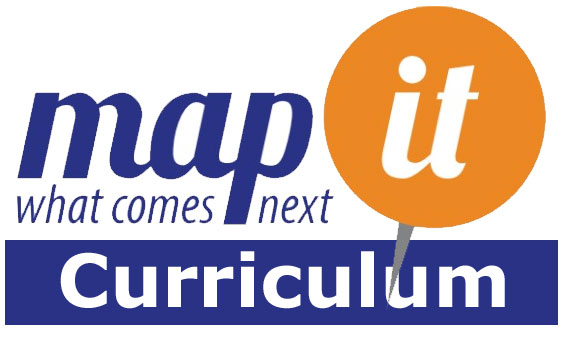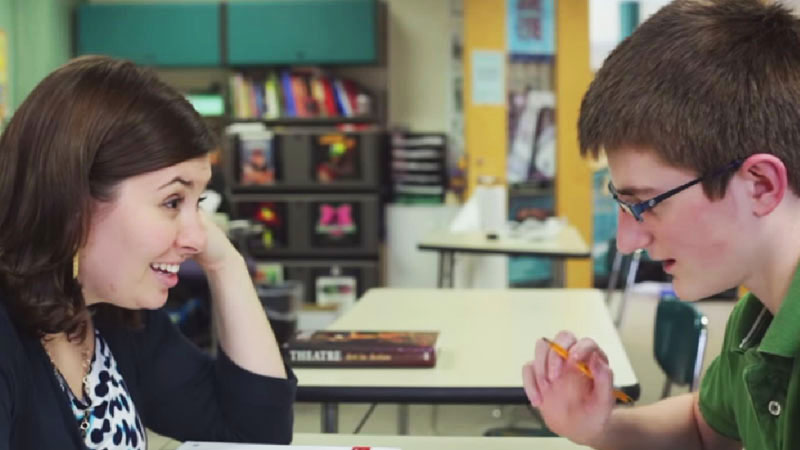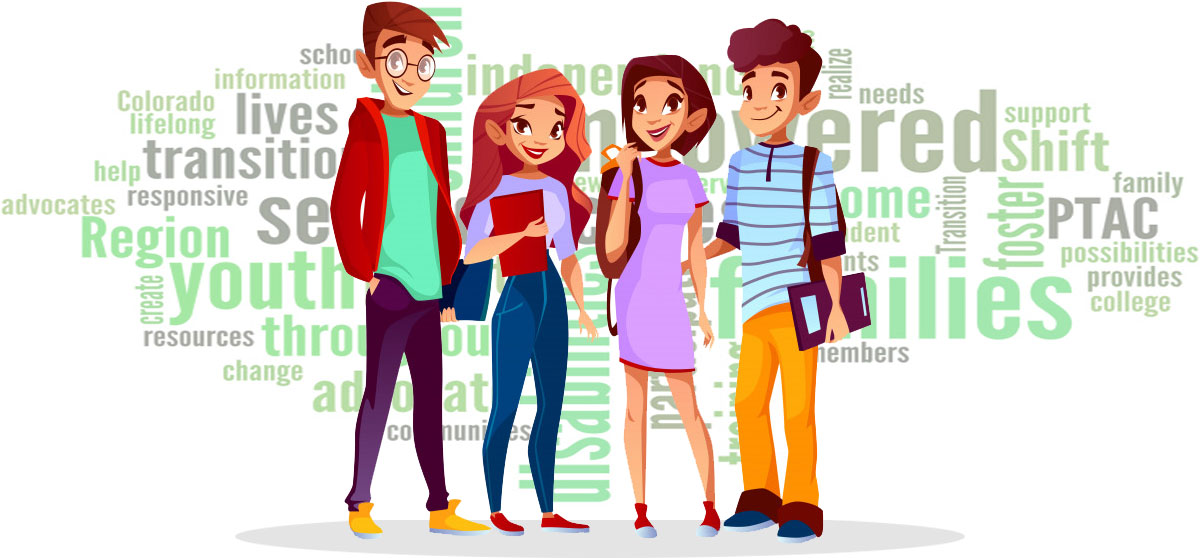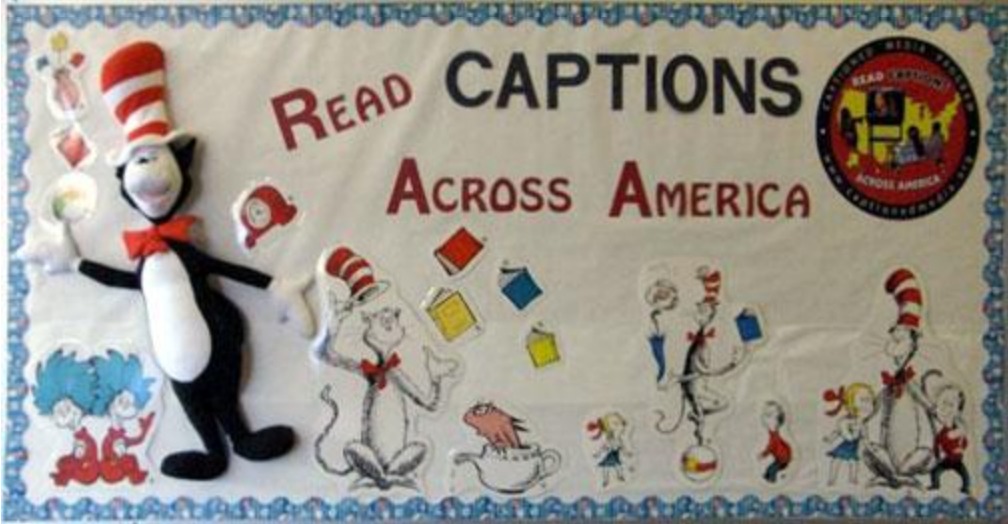12 Learning Center results found.

Map It Teacher Curriculum
The Map It curriculum, part of the Map It: What Comes Next Module, provides lesson plans, materials, and resources needed for educators and professionals to actively engage and guide students in the development of their self-determination and self-advocacy skills. The curriculum culminates with a student-focused transition plan and materials to support students' active involvement in the IEP process. It recognizes that educational settings and access to services vary across the country, creating different needs for students, educators, and professionals.
about module-resource, pepnet, transition

The Hearing Impaired Learner with Special Needs
Written by Robert E. Stepp, Jr. for the Symposium on Research and Utilization of Educational Media for Teaching the Deaf, held on March 31 and April 1-2, 1981, at the Nebraska Center for Continuing Education in Lincoln. This paper applauds the formation of the Individualized Education Program (IEP) which stipulates that special education and related services be specifically designed to meet the unique educational needs of a student with a disability. Suggests that variations on teaching methods should be incorporated into classroom instruction and that an assortment of teaching tools should be accessible to the teacher in accordance with a student's learning ability and level of interest. Three subtopics are areas of concern because of their implications to the education of the hearing impaired: (1) giftedness, (2) developmental disabilities, and (3) deaf-blindness. Also includes a list of symposium presenters.
about research, educators

Expectations in Transition Meeting-Encouraging Student Participation
Transition planning for high school students has been going on in some formal way for over
three decades within the school system. Some states set the transition age at 14, and others
started the planning at age 16. In most cases, it was addressed as a separate process with its
own set of paperwork from that of the Individual Education Plan developed in an IEP meeting
where academic progress, classroom accommodations and other student needs were
addressed. The Individuals with Disabilities Education Act (IDEA) places emphasis on the importance of the transition planning process, with clear guidelines as to how planning should take place.
From Theresa Johnson, M.Ed. about transition, educators, parents, deaf


Amy's Start Toward a Successful Future: Why is It Important to Talk About the Future?
When I was in 2nd through 4th grade, I started attending meetings to plan for my
future. My mom wanted me to be involved and listen to people in my meeting. In
the meeting, I felt so confused and overwhelmed when I listened to their
discussions about my future. In 5th grade, I was still attending the IEP (in Texas
they are called ARD) meetings to discuss my future and how to improve my
education. By this time, I was very upset and still did not understand why I had to
be involved in the meeting every year! My mom tried to explain why I had to
attend the meeting and why it was important, but I still did not want to attend
the meeting. Then, later when I was in the 6th through 7th grade, I finally started
to participate and discuss issues on how to improve my education and plan my
future a little bit at a time. Just in case, I had my advocate there to take over and
tell them about my classes if I needed help.
From Amy Johnson about educators, parents

Self-Advocacy is Important at Any Age
Self-advocacy has become a buzzword in special education. It is the ability to make one's own decisions and learn how to speak up for oneself. While it may sound simple, it can be a difficult concept to teach.
From Cindy Camp about educators, parents

Stop Bullying
Children who have a physical, sensory, or intellectual disability are at an increased risk of bullying due to stigma, negative traditional beliefs, and misunderstanding by other children. They face an increased risk of violence, teasing, and harassment.
about educators, parents

Is Your Student Ready for What Comes Next?
Life is a series of transitions. Children face changes and challenges as they transition from kindergarten to first grade; from elementary to middle school; and from middle to high school. But perhaps the most challenging transition comes after graduation from high school, because there are so many choices. Teachers and parents often struggle to ensure that their students are ready for this major transition.
From Cindy Camp about transition, educators, parents

Recognize and Reinforce Social Skills Programming
Do you see your students or child having a conversation on a variety of topics, understanding how to participate in a group, walking in the hallways of school talking and laughing with others, or participating in enrichment activities after school with friends? Maybe you do, but most often teachers and parents say children with visual impairments are not ready for most social situations. Lack of vision may affect the ability to model others’ social behaviors and the use of incidental learning for many common social skills.
From Mary Ann Siller about educators

Read Captions Across America
The National Education Association (NEA) annually sponsors an event called Read Across
America. Originally created as a one-day celebration of reading on March 2, Dr. Seuss's
birthday, the activity has grown into a nationwide initiative that promotes reading every day of
the year. The result has been a focus of the country's attention on how important it is to
motivate children to read, in addition to helping them master basic skills.
From Bill Stark about captioning, literacy, consumers, educators, parents

Deaf Culture, Language, and Heritage
[Editor's note: This article was written in
2002 before the author's death in August 2007 and before the
Captioned Media Program became the Described and Captioned Media Program. To
see the National Association of the Deaf's tribute to Dr. Bowe, please refer to the end of this article.]
From Frank G. Bowe about history, dcmp